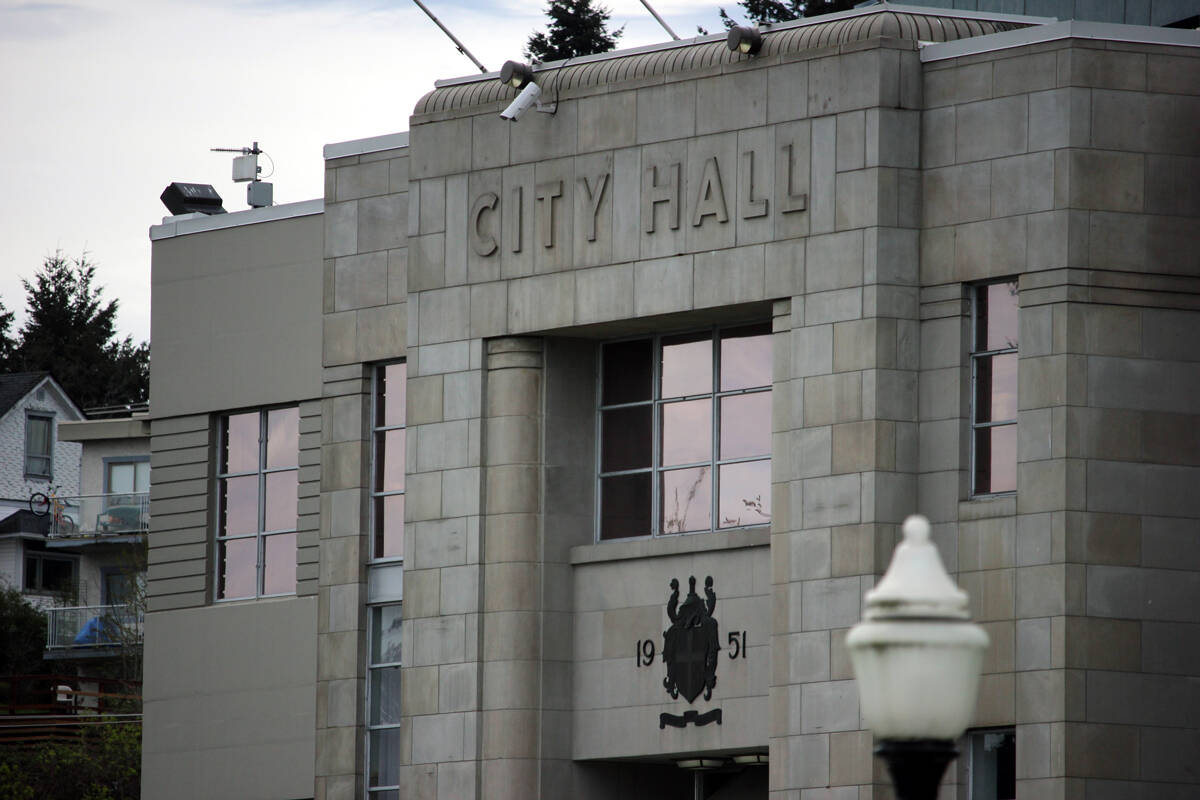The City of Nanaimo plans to back down from fully enforcing building code and fire code regulations in an effort to make it easier for operators to provide emergency shelters and warming and cooling centres.
The decision was made by city council at a meeting Monday, Nov. 20. Lisa Brinkman, community planning manager, presented a proposed policy addressing the city’s liability regarding buildings used for warming and cooling centres and emergency shelters that don’t fully meet building and fire codes for those uses.
The shelters and warming centres are deemed by the city as critical to addressing the needs of vulnerable, unhoused people living in Nanaimo.
“However,there is a shortage of appropriate buildings in Nanaimo to provide overnight shelter and daytime extreme weather spaces and non-profit organizations that offer these services often do not have the financial means to update buildings to meet the B.C. Building Code and B.C. Fire Code requirements,” Brinkman said in her presentation.
The situation puts the city in an awkward position of finding places for people to sleep and be warm while being forced by the province to enforce building and fire codes.
“And not enforcing is a liability risk,” she said.
Staff recommended not enforcing the codes, building bylaws and zoning bylaws, so long as non-profit emergency shelter or daytime warming and cooling centre operators demonstrate they are making reasonable efforts to satisfy code requirements.
The proposal also directs staff to continually communicate with the province about funding needs and code exemptions to help protect shelters and daytime warming cooling centres to keep them operating.
Coun. Ben Geselbracht said “the city is stuck in a hard place” at a time when it needs spaces to house people on an emergency basis.
“[For] these non-profits that are running on shoe strings trying to provide this emergency service, to do upgrades to meet the B.C. Building Code is rather ridiculous and I think that it’s incumbent on the province to come in with funding,” he said. “We need these spaces to meet this need.”
Geselbracht added that it’s also important for the city to advocate on behalf of shelter and centre operators and agencies providing the services.
Coun. Erin Hemmens asked how many of the buildings being used for emergency shelters aren’t meeting building and fire code requirements.
“I would suggest it’s probably all, to be honest, because of the very nature of these temporary uses that go into spaces that were never originally put in the code,” said Dale Lindsay, the city’s chief administrative officer. “I’m not suggesting that every building is unsafe … and I appreciate the comments about the advocacy because there is no place in the code that acknowledges this type of use.”
He suggested the building and fire codes aren’t currently flexible enough to address emergency shelters and extreme weather centres and the province needs to come up with new standards to meet these applications.
Coun. Paul Manly, who is executive director of the Nanaimo Unitarian Shelter, recused himself from the debate, but the rest of council voted unanimously to endorse a regulation enforcement policy resolution and to send correspondence to the B.C. Minister of Housing and Minister of Social Development and Poverty Reduction about the need to protect emergency shelters and extreme weather centres in Nanaimo that don’t meet B.C. building and fire codes.
READ ALSO: Nanaimo city council eyes funding sources for winter warming spaces

